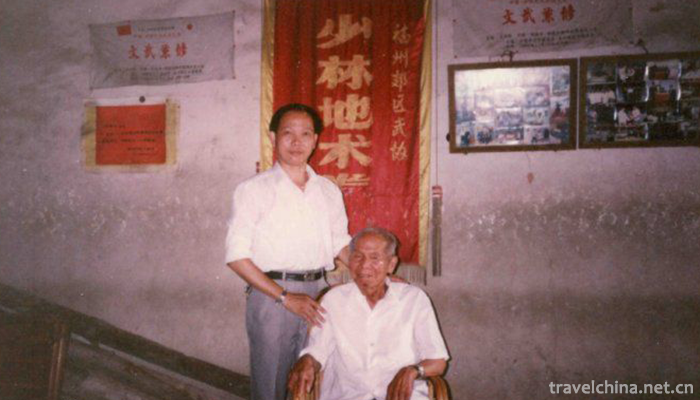Di Shu boxing
Gejiquan is one of the rare traditional types of boxing in southern China, also known as "Gejiu Dog Method", "Dilong Quan" or "Dili Quan". It is commonly known as "Dog Quan" among the people. It has a long history. It belongs to the martial arts and belongs to the sect because of its origin in temples and temples. It also belongs to the Nanquan system because it is located in central Fujian, south of the Yangtze River. Furthermore, Gejiquan imitates the evolution of dog fighting. Therefore, it also has the characteristics of bionic hieroglyphic boxing. The unique ground skills and binding skills of geotechnical boxing are the soul of geotechnical boxing, its only basis for making it different from other boxing.
On May 23, 2011, Gejiquan was approved by the State Council to be listed in the third batch of national intangible cultural heritage.
History
.
Legend has it that in the late Ming and early Qing Dynasty, there was a White Lotus Temple opposite Nanshaolin Temple in Fujian Province. Legend has it that nuns in Nanshaolin Temple were created by nuns in Anzhong in April. At that time nuns in Anzhong nurses were nurses'body-building skills, and their skills were not passed down. The fist was based on the shortcomings of women's small stature and physical strength, which could not be counterbalanced with men, and observed the fighting movements imitating dogs, rolling and tumbling, agile and changeable, fast and fierce, alert and sensitive In the early Qing Dynasty, because Nanshaolin Temple and Bailian Temple participated in anti-Qing activities to restore the Ming Dynasty, they were ordered by the Qing government to burn temples and kill monks and nuns. In April, Shenni was relocated to Chenjia, Yongchun County, Fujian Province, to take refuge in their families. In April, Shenni felt his favor and taught Gejiquan to Chen Biao, the son of Lao Tai Li. Chen Biao, after ten years of hard practice day and night, was proficient in this skill. He regarded it as a secret skill of Wulin. He only passed it on to his sons and daughters.
In the early years of the Republic of China, Chen A-yin was introduced to Chen A-yin, who killed local villains and fled to Chenyi Jiujia in Singapore because of Chen's unequal fighting. Teacher Chen A-yin felt his support and taught Chen Yi-jiu as much as he could. Teacher Chen Yi-jiu loved martial arts at an early age and learned Thai boxing, drunken boxing and Dragon monkey boxing. After Chen A-yin's biography, he devoted himself to studying dog boxing, which was more sophisticated and comprehensive, and was quite popular in Southeast Asia. Famous, known as "Nine Teachers with Iron Feet" and "Nine Divine Legs", he was the president of Singapore Wushu Association. Mr. Chen Yijiu returned to China in 1942 and settled in Fuzhou.

0 Questions
Ask a Question
Your email address will not be published.